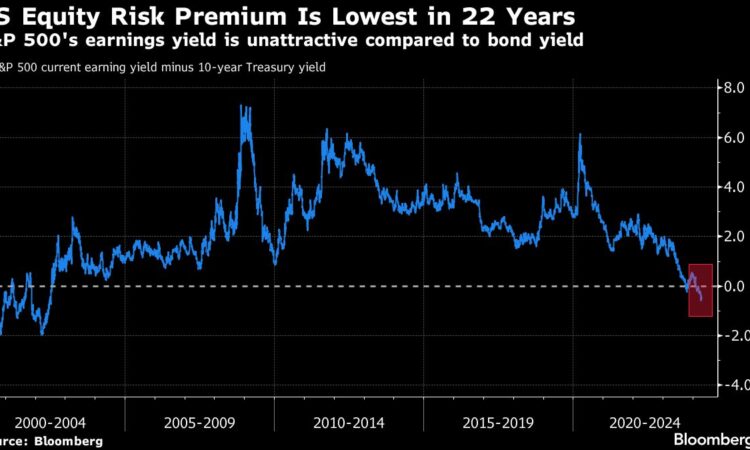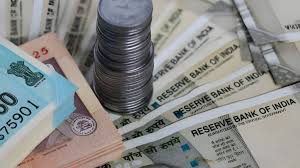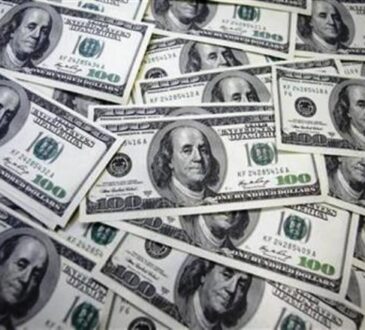
(Bloomberg) — Stocks in Asia rose Thursday as pushback from authorities against a stronger dollar helped stabilize currencies and restored a sense of confidence in the region’s financial markets.
Most Read from Bloomberg
All major regional stock markets including China, Japan, Australia and South Korea rose. A global stocks gauge ticked higher, placing the benchmark on track for its first advance in a week.
“The current market reaction is being driven by the pause in the dollar’s rally and increase in US bond yields,” said Rajat Agarwal, Asia strategist at Societe Generale. “There is low concern on the growth front but what happens with the dollar and Treasuries will be key triggers to watch.”
The won led the climb in Asian currencies against the dollar, while the yen was steady following a joint statement from US Treasury Secretary Janet Yellen alongside the finance ministers of Japan and South Korea that noted “serious concerns” about the depreciation of the two Asian currencies. A global gauge of emerging market currencies was heading for a second day of gains, suggesting some stability after hitting a 2024 low earlier this week.
An index of the dollar fell for a second day. Treasuries were little changed after a Wednesday rally that wiped eight basis points from the 10-year yield. The offshore yuan was steady after the People’s Bank of China reiterated that it wants to prevent risk of the exchange rate overshooting, according to a statement posted on WeChat.
“The US has effectively given the nod on intervention,” said Keiichi Iguchi, a senior strategist at Resona Holdings Inc. in Tokyo. “This has increased speculation that a coordinated intervention is a possibility.”
Asian financial markets have seen turbulence this week amid a sharp re-pricing by traders on the timing and number of interest rate cuts by the Federal Reserve after strong US economic data and sticky inflation. Meanwhile, signs of recovery in the Chinese economy are already fading despite efforts by Beijing to provide support.
Dong Chen, chief Asia strategist at Banque Pictet, sees the rebound in Asian risk assets as a “relief rally” as “there is still quite some uncertainty regarding US yields from here, depending on inflation readings in the coming months.” He added that “the expectations for the Fed’s rate trajectory ahead are still evolving.”
US equity futures were higher after the S&P 500 fell for a fourth day Wednesday, the longest losing streak since January. The benchmark has now dropped more than 4% from last month’s record high. The tech-heavy Nasdaq 100 declined 1.2% Wednesday with Nvidia Corp. leading losses among US megacaps.
Chip Stocks
A gauge of global chip stocks and AI bellwether Nvidia Corp. have both fallen into a technical correction, showing moderation in the global equity market’s most conspicuous driver over the past year and a half.
Traders will be closely watching Asian chipmakers such as Taiwan Semiconductor Manufacturing Co., which reports earnings later Thursday, and Tokyo Electron Ltd. Europe’s most valuable tech firm ASML Holding NV said Wednesday that orders tumbled in the first quarter, and its China sales are likely to be hampered by US export control measures.
ASML’s earnings are “a little bit of a warning shot across the bow ahead of some of the megatech stocks which are reporting next week,” said Tony Sycamore, a market analyst at IG Australia in Sydney. “There could be a little bit of nerves creeping into semiconductor stocks.”
Metal stocks advanced in South Korea and Australia after President Joe Biden called for higher tariffs on imports of Chinese steel and aluminum.
Elsewhere, Micron Technology Inc., the largest US maker of computer-memory chips, is poised to get more than $6 billion in grants from the Commerce Department to help pay for domestic factory projects, according to people familiar with the matter. It’s part of an effort to bring semiconductor production back to American soil.
Just a day after Jerome Powell threw cold water on rate-cut bets, dip buyers emerged in the Treasury market on Wednesday, with two-year yields dropping further below 5% and a $13 billion sale of 20-year bonds drawing solid demand.
“The US central bank remains on track to cut rates twice this year, most likely starting at its September meeting,” said Solita Marcelli, chief investment officer for the Americas at UBS Group AG’s wealth management unit. “This means the return outlook for quality bonds remains positive and attractive, and that recent losses in fixed income are likely to be temporary.”
In Asia, data set for release includes machine tool orders in Japan and Hong Kong unemployment. Markets are closed in Vietnam. The unemployment rate in Australia rose, reflecting restrictive policy settings.
The Nordic region’s largest bank, Nordea Bank Abp, reported an 11% year-over-year rise in first-quarter net interest income, beating analysts’ expectations.
Elsewhere, oil held most of Wednesday’s 3% decline, weighed by weaker Chinese industrial data and a swelling in US crude inventories, while gold edged higher.
Key events this week:
-
Taiwan Semiconductor earnings, Thursday
-
US Conf. Board leading index, existing home sales, initial jobless claims, Thursday
-
Fed Governor Michelle Bowman speaks, Thursday
-
New York Fed President John Williams speaks, Thursday
-
Atlanta Fed President Raphael Bostic speaks, Thursday
-
BOE Deputy Governor Dave Ramsden and ECB Governing Council member Joachim Nagel speak, Friday
-
Chicago Fed President Austan Goolsbee speaks, Friday
Some of the main moves in markets:
Stocks
-
S&P 500 futures rose 0.3% as of 1:52 p.m. Tokyo time
-
nasdaq 100 futures rose 0.4%
-
Japan’s Topix rose 0.6%
-
Australia’s S&P/ASX 200 rose 0.5%
-
Hong Kong’s Hang Seng rose 1.3%
-
The Shanghai Composite rose 0.6%
-
Euro Stoxx 50 futures were unchanged
Currencies
-
The Bloomberg Dollar Spot Index was little changed
-
The euro was little changed at $1.0676
-
The Japanese yen was little changed at 154.31 per dollar
-
The offshore yuan was little changed at 7.2467 per dollar
Cryptocurrencies
-
Bitcoin rose 1.3% to $61,658.98
-
Ether rose 1.5% to $3,015.46
Bonds
Commodities
-
West Texas Intermediate crude was little changed
-
Spot gold rose 0.6% to $2,374.73 an ounce
This story was produced with the assistance of Bloomberg Automation.
–With assistance from Matthew Burgess.
Most Read from Bloomberg Businessweek
©2024 Bloomberg L.P.




